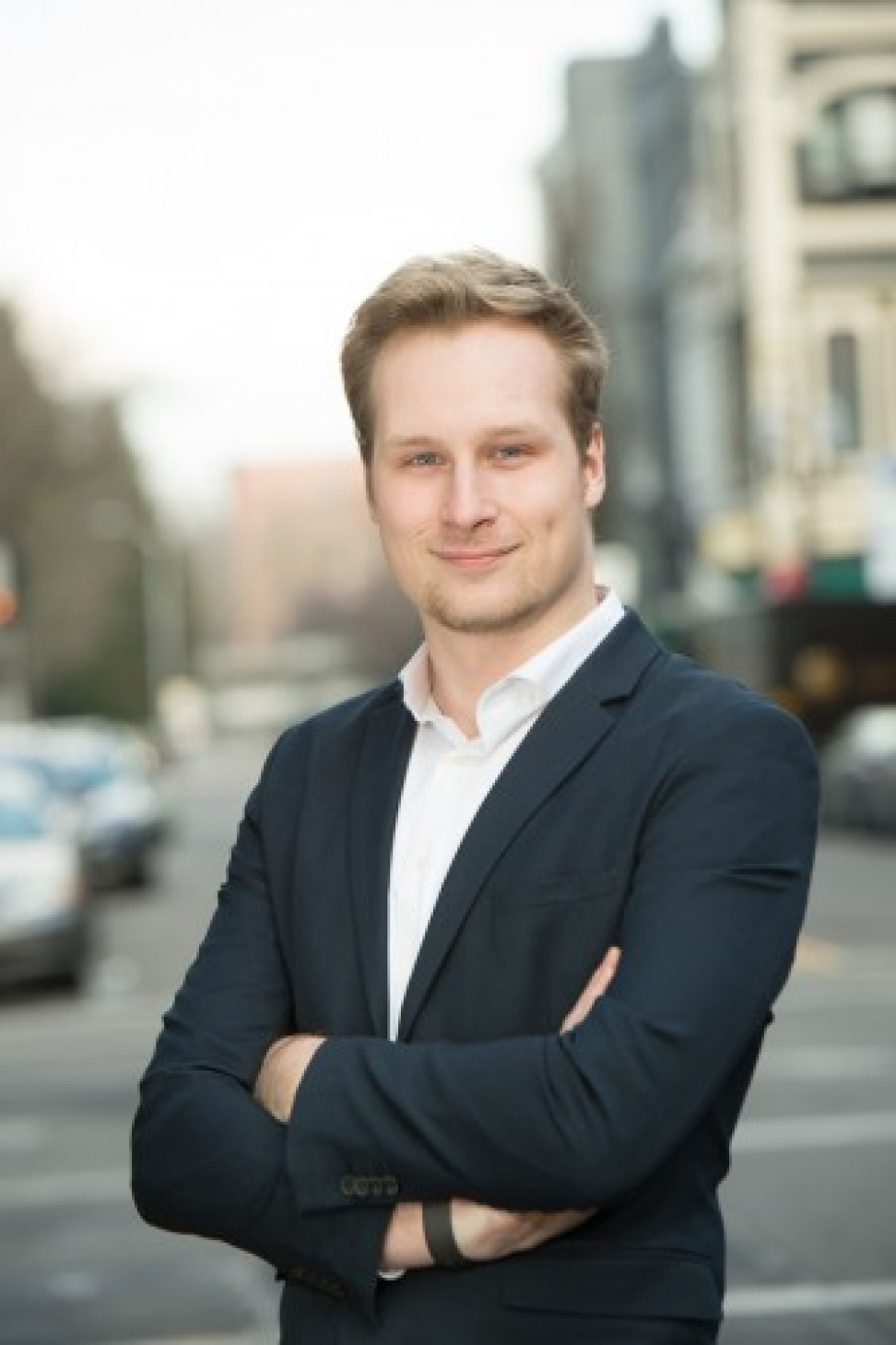
Being a Part of an Exciting Future: Interning at Forth
By: Arthur Garrison
I first learned about Forth through Reed College, where I am completing my final year as an undergraduate student in linguistics. I was motivated to join Forth as an intern through my growing interest in transportation-related issues and the exciting, futuristic topic of Electric Vehicles that is fast becoming a reality in many cities. Linguistics and transportation don’t at first glance seem to be connected subjects, but both deal intrinsically with access to communities, resources, power, and status. This internship has been an eye-opening experience, giving me the opportunity to experience the collaborative workstyle of an involved nonprofit while becoming immersed in the world of electric mobility.
Activism in both transportation and linguistics can liberate communities by providing control over context. Communities historically marginalized in transportation policy often suffer additional discrimination based on language. For example, East Portland and North Portland have been considered by many to be underserved by public transportation. [1] The communities who live there are more diverse than the central and West-side neighborhoods of Portland, which mean people of color have less access to public transportation or other cost-saving methods of transportation. Whether they use English as a foreign language or use a language variant that is considered nonstandard (such as African American English, or rural dialects), it has been well established that they are less likely to receive beneficial offers for jobs, rent, or loans. [2]
I come from a town in Northern Idaho, and I wanted to understand how Forth and Smart Mobility could apply to people who live in rural areas, where public transportation is often impractical, and a combination of weather, long distances and more pronounced lack of charging infrastructure make Electric Vehicle adoption a difficult proposition. The culture of Northern Idaho is resistant to ideas that appear to limit individual freedoms for a public good, like the range limitations and compact spaces of Electric Vehicles. How does Forth reach out to these more difficult or more marginalized demographics?
Forth feels unique in that its team deals with many different aspects of electrified mobility at the same time. Forth conducts outreach and education by going to schools, trade shows, expos, networking events, and other public events to table and talk about electric cars, buses, and bikes with anyone interested. Forth also helps potential buyers of electric cars and bikes with free and brand-neutral “Ride and Drive” events with examples of modern electric vehicles for people to test-drive. Forth operates the Go Forth Electric Showcase in downtown Portland to provide a place for free test drives and cheap rentals of electric cars. Forth works with communities, nonprofits, small businesses and large corporations alike to provide rideshare schemes, install electric charging stations, and help figure out the transportation needs of these communities. It isn’t always cars; when Forth found that a large barrier to transportation in one transit-starved Portland community was a lack of driver’s licenses, they implemented a program to provide free electric bikes for use. And Forth follows public policy, provides recommendations, and lobbies for bills that advance the electrification of transportation such as Residential Credit for utilities.
Working with Forth, I got the opportunity to engage in activism through a variety of ways. A large part of my internship was dedicated to researching information and public policy relating to electric vehicles, including exploring the LEV (Low-Emission Vehicle) and ZEV (Zero-Emission Vehicle) mandates of California and how they related to the 12 states adhering to the emissions standards of Section 177, the EPA, and the Paris Climate Agreement. I translated informational documents into French, and helped create a budget for one of Forth’s upcoming ride-share projects. Public engagement and outreach were another part of my internship. I went to tabling event and ride-and-drives to introduce and explain Electric Vehicles and charging infrastructure to students, officials and potential buyers. Highlights of my experiences with Forth include lobbying in Salem, having the wind taken out of me when I first hit the accelerator of an electric vehicle, and being able to explain to countless people why electric vehicles are actually much more viable for daily transport than public perception.
Through my internship, I was able to become informed on electric vehicles, battery technologies, the problems of charging infrastructure, and the ability to access zero-emissions forms of transportation. This is in no small part thanks to the amazing team at Forth, who are willing to drop their work for a moment to talk about their thoughts on the issues, and who always encouraged me to look higher and to share my enthusiasm for accessibility. Thanks to Forth, the future of zero-emissions mobility has never been as electrifying.


